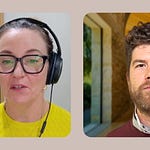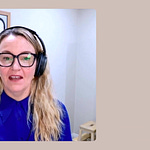Summary
In this episode of Chalk Dust, Rebecca Birch and Dr Nathaniel Swain are joined by Denarius Frazier, Regional Superintendent of Instruction for Uncommon Schools in New York City and Senior Advisor with the Teach Like a Champion team. Denarius, co-author of Reconnect: Building School Culture for Meaning, Purpose, and Belonging, shares how routines, feedback, and culture can transform classrooms into places of both rigour and belonging.
Together, they analyse footage comparing Denarius’ own classroom with that of UK teacher Matthew Gray, focusing on practices like narrating the lap, culture of error, and show-calling student work. They also examine a lesson from master teacher Julia Addeo to explore how expert teachers respond in real time to patterns of misunderstanding while maintaining high expectations and warmth.
Themes include how belonging is cultivated through competence, why predictability and shared routines lower cognitive load, and how monitoring and feedback can be systematised so every student experiences success during a lesson—not after it. The conversation bridges cognitive science and classroom craft, illustrating that belonging and excellence are not opposites but mutually reinforcing.
Mentioned resources and explainers
Teach Like a Champion 3.0
Doug Lemov’s updated framework underpins much of the discussion, including active observation, show call, and habits of attention.
Reconnect: Building School Culture for Meaning, Purpose, and Belonging
Co-authored by Denarius Frazier, this book explores how predictability, structure, and academic success foster genuine connection in schools.
Rosenshine’s Principles of Instruction
Referenced when Nathaniel and Rebecca note that “monitoring independent practice” must be more than wandering the room—it should be intentional, transparent, and coachable.
Daniel Willingham – Why Don’t Students Like School?
Denarius cites Willingham’s model of working memory to explain how predictable routines and planned responses prevent cognitive overload for both students and teachers.
Active Observation & Mastery Thresholds
Frazier outlines how teachers can respond to classroom data: reteach when mastery <50%, compare exemplars when 50–70%, and run “almost-there show calls” when >80%. These heuristics help teachers act on evidence rather than instinct.
Listen or view, and support our work
📨 Substack — sign up
🍏🎧 Apple Podcasts — like, review and follow
🎵💚 Spotify — follow and rate
📺🔔 YouTube — subscribe and like
✍️ Rebecca’s Substack — read more
✍️ Nathaniel’s Substack — read more
Takeaways
• Belonging is built through competence, not just connection; students trust teachers who help them succeed.
• “Naming the lap” makes feedback purposeful and visible, showing students what excellence looks like as they work.
• The culture of error normalises mistakes as learning opportunities, building safety and inclusion through transparency.
• School-wide consistency in routines reduces chaos and cognitive load, especially for adolescents.
• Data-informed show-calls turn monitoring into responsive teaching, using student work as a mirror for collective growth.
• Expert responsiveness isn’t improvisation; it’s structured anticipation guided by mastery data.
• Classroom culture is the prerequisite for rigour: without predictability and attention habits, high-quality instruction cannot land.
Keywords
Denarius Frazier, Teach Like a Champion, Reconnect, Uncommon Schools, explicit teaching, Rebecca Birch, Nathaniel Swain, Chalk Dust podcast, classroom culture, belonging, competence, feedback, show call, culture of error, Rosenshine, active monitoring, responsive teaching, working memory, cognitive load, data-informed instruction, predictability, routines.












